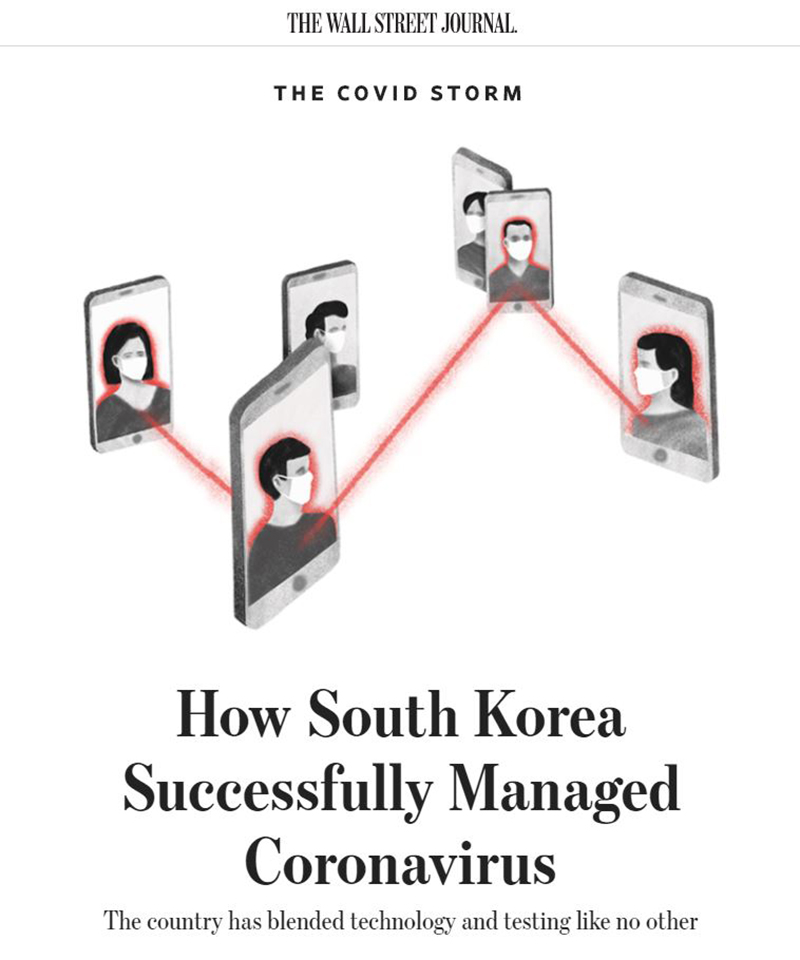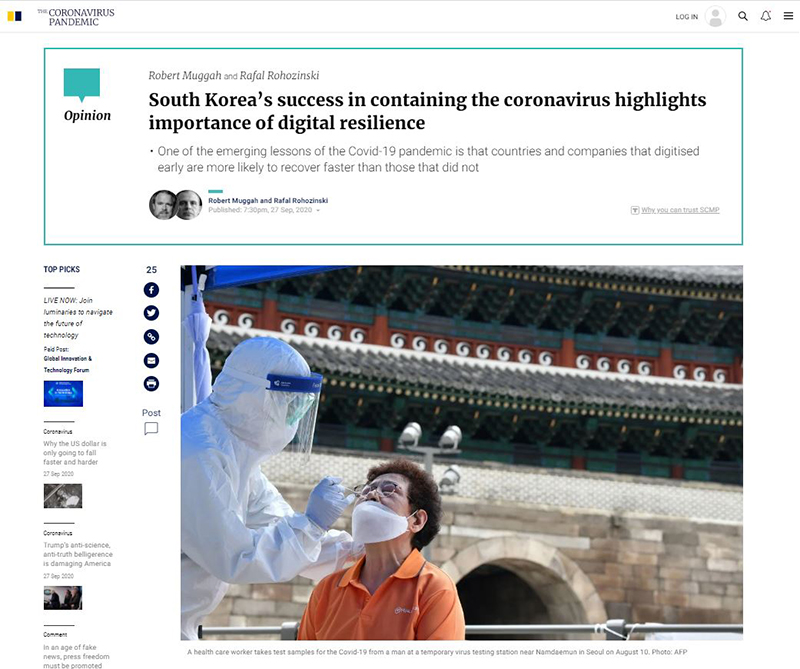
The Wall Street Journal on Sept. 25 ran the article "How South Korea Successfully Managed Coronavirus." (Screen shot of WSJ website)
By Lee Hana
Korea's success in fighting the COVID-19 pandemic has again caught the attention of foreign media.
The Wall Street Journal on Sept. 25 said in the article "How South Korea Successfully Managed Coronavirus" that the country "appears to have cracked the code for managing the coronavirus."
"Its solution is straightforward, flexible and relatively easy to replicate," it added.
The daily said the key to Korea's success "came from blending technology and testing like no other country, centralized control and communication -- and a constant fear of failure."
"The nation fast-tracked approval of domestic testing kits as soon as cases began hitting. It tapped into its relative wealth and hyperconnectivity, blasting text alerts to citizens if infections occurred in their area. When the supply of face masks ran short early on in the crisis, the government seized production," it added.
The report said "nearly everyone in the country wear masks, and every confirmed patient, even those with no or mild symptoms, get isolated at hospitals or converted dormitories run by the government and that treatment is free."
"As a result, South Korea never had a mandate a lockdown, so restaurants and business were able to stay open, cushioning the blow to the economy."
Quoting Dale Fisher, chairman of the World Health Organization’s global outbreak alert and response network, the newspaper said, "No country has adapted to living with, and containing, the virus like South Korea."

The Hong Kong-based South China Morning Post published on Sept. 27 the op-ed "South Korea’s success in containing the coronavirus highlights importance of digital resilience." (Screen shot of SCMP website)
The South China Morning Post, a Hong Kong-based newspaper, published on Sept. 27 the op-ed "South Korea’s success in containing the coronavirus highlights importance of digital resilience" written by Robert Muggah and Rafal Rohozinski, co-founders of the digital risk and resilience consulting company SecDev Group.
The authors said that among the many factors contributing to Korea's success including its method of trace, test and treat, the "secret to the country's success might also reside in its digital capabilities."
"One of the emerging lessons of the Covid-19 pandemic is that countries and companies that digitized early are more likely to recover faster than those that did not," it said.
The Korean government, both writers added, mobilized its digital assets to positive effect when COVID-19 was first detected, investing in new solutions for screening and diagnosis and rolling out apps for self-health checks and GPS-based tools to enforce quarantine.
"South Korea’s recent experience is a stark reminder of the importance of digital resilience in a digitizing world," it said, adding that "the ability not just to ensure continuity of services when shocks hit, but also to bounce back and improve, is a trademark of smart governance in the 21st century."
"Digital resilience...makes good business sense and is a down payment on a more secure future, which explains why South Korea is racing ahead to build a digital new deal organised around 5G, artificial intelligence and big data."
hlee10@korea.kr
Most popular
- Council sets minimum hourly wage in 2026 at KRW 10,320
- Songs from 'KPop Demon Hunters' dominate global Billboard charts
- Songs from animated K-pop film rule Spotify daily chart in US
- 28th annual Boryeong Mud Festival to offer more night events
- Exhibition 'K-Comics World' hawks webtoons in 5 countries
